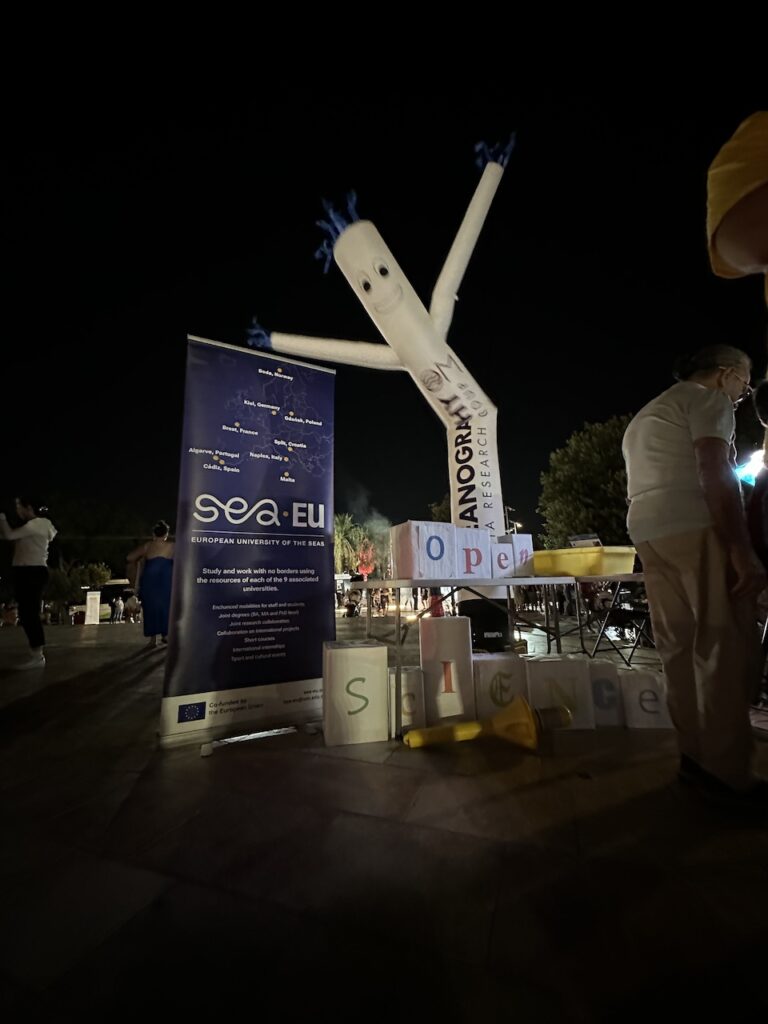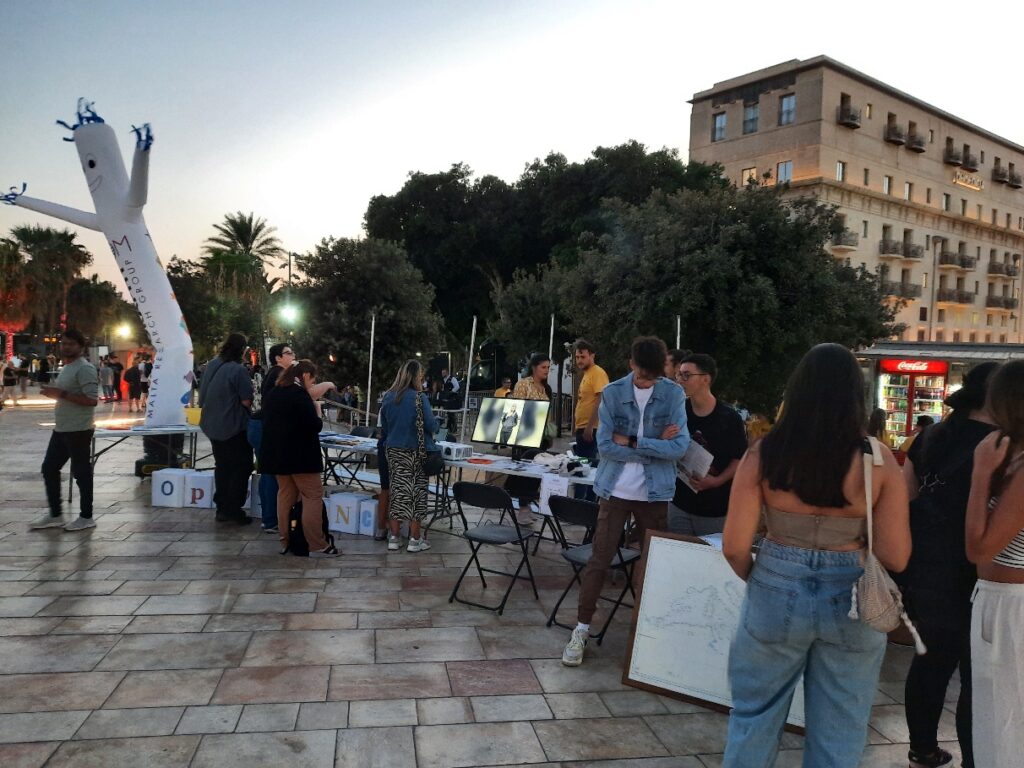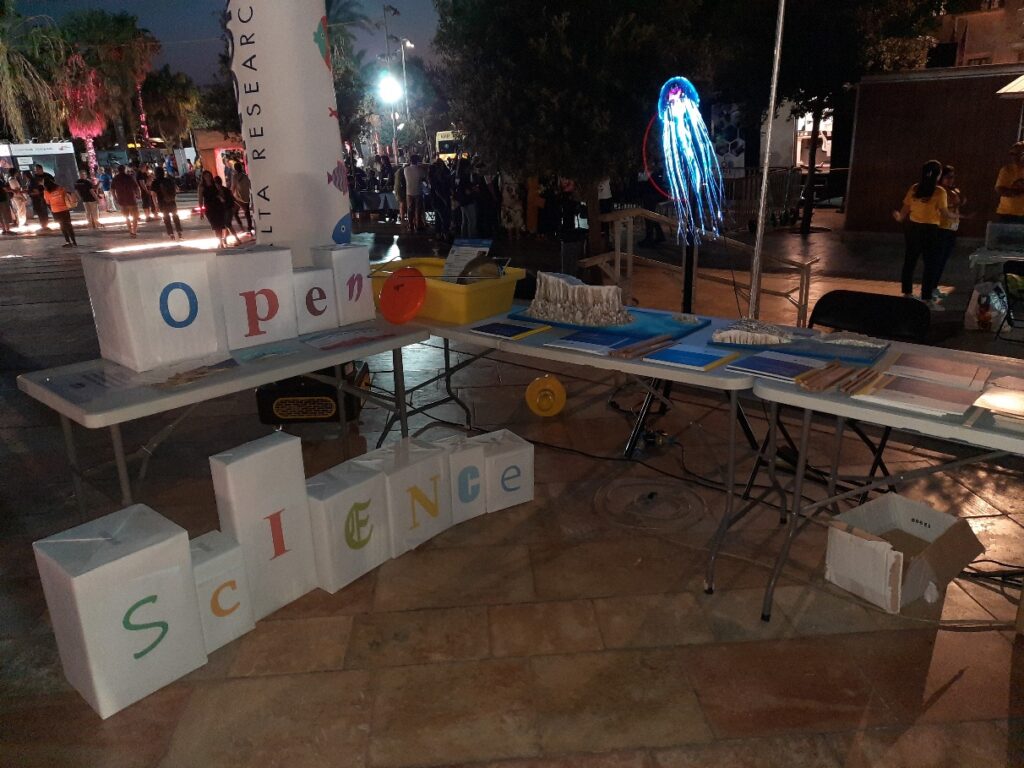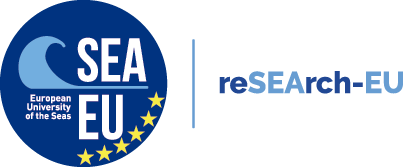Open Science at Science in the City, Malta 2023
Open Science featured extensively in the Oceanography Malta Research Group’s stand, entitled ‘Dive In!’, during the Science in the City Street Festival, held at the Pjazza Tritoni in Valletta on Friday 29th September 2023.
The street festival, which is estimated to attract a few thousand people each year, is an opportunity for researchers to showcase their activities to the public. University of Malta’s OSAs took this opportunity to show how Open Science can benefit both researchers and society in general, by portraying the tangible outcomes of various projects. Props were used to explain how the public can contribute through the various Citizen Science campaigns coordinated by the Research Group.
Description of activity
The Oceanography Malta Research Group (OMRG) had a stand called “Dive in!” in Zone 11, next to the
Triton Fountain in Pjazza Tritoni. Part of the stand was dedicated specifically to Open Science. Dr. Adam
Gauci and Audrey Zammit engaged with the public to describe the benefits that can be derived from the
Open Science paradigm, both for researchers and the public in general. Different aspects of Open Science
were tackled:
- Citizen Science: OMRG coordinates a number of Citizen Science campaigns, including Spot the Jellyfish and Spot the Alien. The recently launched ANDROMEDA smartphone app was also displayed. This app can be used to collect data about microplastics found on sandy beaches.
- Open Data: The stand also included a section about Open Data, using EMODnet (European Marine Observation and Data Network) as an example. This network includes data from ‘traditional’ marine observatories. It also encourages entities collecting data on a one-off basis to upload their data to the network through its Data Ingestion initiative. This data is available to other researchers. The European Atlas of the Seas has been compiled using this data. This tool consists of a series of predefined maps and map stories which provide information about Europe’s marine environment, covering topics such as nature, tourism, fish consumption and much more. Leaflets with a QR code linking to the Atlas were available to encourage the visitors to go to the link.
The stand was also used to promote other activities held within reSEArch-EU. Leaflets with a link (QR code) to the video capsules prepared by the OSAs during the staff week held in March 2023 in Cadiz were
distributed. Furthermore, the upcoming “Bus Tour: Visiting examples of University of Malta’s visible
impact on Maltese Society” to be held in November this year, was advertised.
Audience
As expected, the stand attracted a number of people from all walks of life. It is estimated that hundreds
of visitors of all ages stopped to engage with the University staff on the stand. Their interest varied from
asking about University of Malta courses to how they can help with collecting plastics.
Outcomes
No direct tangible outcomes can be ascribed to the event. However, the level of interest in the University’s activities, particularly in how they can help to protect the environment, was rather high. This augurs well, showing that the drive to promote ocean literacy is having an impact on society. The availability of reliable information was a point with which the audience was not so familiar, so this activity should have helped to address this gap.




